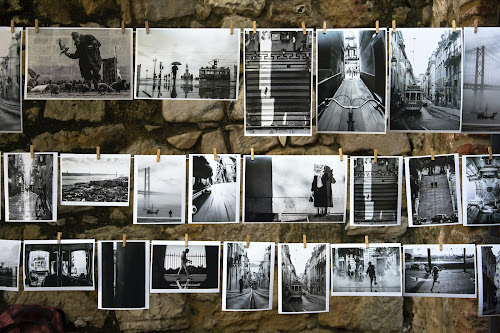10 things to consider before hiring a music PR
1. ) Don't think that you need a publicist right away.
"You do not need a publicist if you're a relatively new band who has yet to put out an album, can't tour outside of your hometown or your general geographic area, and if the cost of hiring a publicist is going to hurt you financially," says Seide, who's repped Tool, Baroness, and the Melvins.
3) Know that a publicist’s job has limits.
In addition to writing a good press release and pitch, and to submit your music to the appropriate medias, publicists can offer constructive marketing advice, such as insight on what to tell in your story, things you should avoid talking about, which singles they feel the press will react to in a positive way, a strategy of what materials / songs to promote, a timeline, and more.
That's why you shouldn't hire a PR too early. When you plan your first-ever campaign, coverage results can be frustrating at first and paying a professional at that point will not guarantee coverage either. Even if they put in the extra time and effort to ensure the media pays attention to the music, they still can’t guarantee the press will like it or act on it. That’s the job of the artist.
Must-Read: MUSIC PROMOTION VS MUSIC MARKETING
4) Save money. 
If you're feeling great about your music, and you built your "foundations" with your first DIY campaign, then now's the time to start saving money for good PR, which can be expensive. Having a budget before you talk to a publicist can save both of you a lot of time. Some will be totally out of your price range, others may negotiate, and some will be a perfect fit. In my personal experience, the cheapest campaign my band paid for was around $1000 for each month of PR campaign.
5) Stock-up on unreleased content.
Either you decided to become your own publicist or you decide to hire a PR, the more material, the greater the odds of coverage for you.
Yes, you worked your so hard to make an entire album... but that's only a very small portion of the work you have left to give it the attention you think it deserves.
The more music videos that illustrate your music, alternative versions of songs, upcoming tours and shows, and anything else creative and outside the box, the more you or your publicist will be able to come up with a killer strategy for releasing everything, and you'll maximize his or your efforts and your overall campaign.
That strategy will allow you to get more attention on a longer period of time, gain more fans and followers as you go, and keep people interested. Your followers won't be bored and will be excited to discover something new every day / week / month / year / decade...!!!!
Must-Read: ABOUT THE "PHYSICAL SUBMISSIONS" TO RADIO STATIONS
6) Look professional.
You don't need to spend thousands of dollars in graphic design and photograph, but do hire professionals who can help your visuals to be consistent, good quality, coherent with who you are as an artist and how you want to be perceived with the right colors, theme, font, pictures, style, etc.. That goes for all your contents : pictures, logos, websites, posts, etc...
7 Don't hire someone who makes big promises.
We now understand that the only promise a publicist can make is that they'll work hard on your behalf. This goes double for any publicist who says they can get you press in a specific publication...
Stay away from PR who guarantee coverage, it's bullshit! Instead, hire a PR company that is going to be honest about what they think they can achieve.
You know the saying: "when it seems too good to be true, it usually is..."
Must-Read: WHAT DOES A PITCH LOOKS LIKE?
8) Set your goals and manage your expectations.
Be honest about your goals and expectations. I suggest you make a timeline :
- Phase 1 : the "reachable and reasonable" coverage (now)
- Phase 2 : the "that would be pretty cool" coverage (near futur)
- Phase 3 : the "big dream coverage" (futur)
That way you'll be able to manage your expectations, avoid wasting your time or asking your PR to reach out to medias that are out of reach for the moment.
This technic helps me to keep motivated. I'll keep working and do everything every step of the way in the direction of that big goal.
Many music PR have a dedicated focus ; for example some only do print media or only digital, only do radio promotion, college radio promotion, or only playlists placements.
A PR campaign shouldn't be general. It should be centered around a specific project and have specific goals and media types to reach.
Hire a PR for a set period, during which he/she will write a killer press release, send emails, do his/her magic and try to generate as much press as possible.
10) Do your research before reaching out to a publicist.
As I said in 9), look for publicists who work with artists who have a similar sound or aesthetic to yours. For example, someone with a roster primarily focused on rap might not be the best fit if you’re a rock artist.
Have a closer look at publicity campaigns you particularly liked or that align with your own goals, and find out who's behind them
Consider publicist research similar to the kind of digging you might do on a company before a job interview. Look to artists who are succeeding in a way you could see your career following.
Getting referrals is always a smart move. "Depending on the size of the band, asking other artists who they work with, or having your manager or booking agent make suggestions, is also a good way to find the right person," Seide says.
BONUS TIP: QUESTIONS TO ASK A P.R.
Working with a PR firm can be very expensive, and there is no guarantee of any payoff.
Before you sign up with a music PR, ask yourself—and him/her—plenty of questions, so you can be confident with who you work with:
1. How many clients does he/she currently have on their roster, and do they have ample time to dedicate to your project? (too many clients means less time dedicated to your campaign)
2. Who else does he/she currently represent, and could other clients be in direct competition with you or your campaign?
3. Where has he/she recently landed media coverage, and what outlets do they think might be a good fit for you?
4. What other artists or bands has he/she worked with in the past, and are they at a similar level and genre?
5. How often do they send reports, and how can you see who they have pitched on your behalf?
You don't want to spend a lot of money on a publicist only to see very little come from it. Start with a clear vision of what you want, what you expect from a successful campaign, and the time frame you require. Only move forward if you are confident that the PR has addressed all of your questions and can deliver on their (reasonable) promises.






